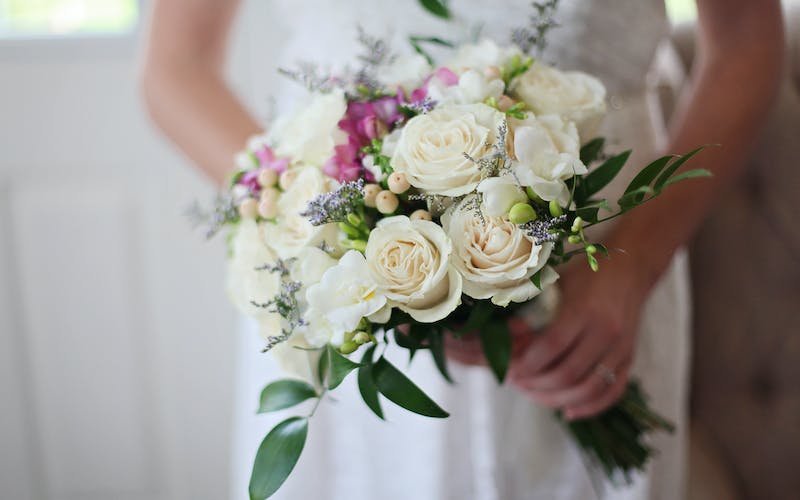A wedding day is a special event, the pinnacle of love and devotion, the celebration of a lifelong journey. A hidden world of painstaking preparation and execution exists behind the scenes of every picture-perfect wedding.
In this article, we’ll venture into the captivating realm of the wedding planning industry, unveiling its intricate workings, the roles of key players, and the evolving trends that shape modern weddings. So, let’s take a peek behind the veil and discover the secrets of bringing dream weddings to life.
The Wedding Planner’s Role
Wedding planners, often the unsung heroes of the wedding industry, play a pivotal role in transforming dreams into reality. Their duties include anything from picking locations and negotiating with vendors to managing budgets and ensuring everything works smoothly on the big day.
Understanding the couple’s notion and turning it into a coherent theme is one of the most crucial aspects of a wedding planner’s job. They are the event’s creative organizers, in charge of everything from the color scheme and floral arrangements to the cuisine and entertainment. They are also adept problem solvers, prepared to cope with any unexpected obstacles that may arise, ensuring that the wedding unfolds seamlessly and according to the couple’s vision.
The Evolution of Destination Weddings
Destination weddings have gained immense popularity in recent years, offering couples a chance to tie the knot in picturesque locales far from home. This trend has been fueled by the desire for unique and memorable experiences. From exotic beaches to historic castles and serene vineyards, couples are choosing locations that resonate with their personal stories.
Destination wedding planning is a specialized niche within the industry, with planners coordinating not only the ceremony and reception but also travel logistics for guests. The result is an intimate and immersive experience that can turn a wedding into a once-in-a-lifetime adventure.
Cultural and Religious Influences
Weddings are deeply influenced by cultural and religious traditions, which vary significantly worldwide. Wedding planners often need to navigate these diverse customs and rituals, ensuring that they are integrated seamlessly into the celebration. Understanding cultural and religious nuances is essential to respecting the couple’s heritage and creating an inclusive and meaningful experience for all.
For example, in Jewish weddings, the signing of the ketubah, a traditional marriage contract, holds immense significance. The ketubah signing rules dictate specific protocols, including the presence of witnesses and the use of specific language in the document. This ancient practice symbolizes the commitment and responsibilities of the couple, highlighting the beauty of blending tradition and love on their special day.
Eco-Friendly Celebrations
As sustainability becomes a central theme in today’s world, eco-conscious couples are extending their commitment to the environment to their wedding day. Eco-friendly weddings are on the rise, with a focus on reducing waste, sourcing locally, and minimizing carbon footprints.
From choosing organic and locally sourced catering to opting for digital invitations and favoring reusable decor, there are numerous ways couples are making their weddings more environmentally friendly. Some even go as far as hosting zero-waste weddings, where every element of the celebration is carefully planned to leave no ecological impact.
Hidden Costs and Budgeting
Behind the scenes, budgeting is a significant challenge in wedding planning. While the industry often markets glamorous and extravagant weddings, the reality is that many couples need to navigate hidden costs. These may include service fees, taxes, gratuities, and unexpected expenses that can add up quickly.
To tackle this issue, wedding planners often create detailed budgets and provide transparency about potential costs. They work closely with couples to prioritize the elements that matter most and allocate funds accordingly. This helps ensure that couples have a realistic understanding of their budget and can make informed decisions.
Technology’s Influence on Wedding Planning
Technology has revolutionized the wedding planning process. Couples now have access to an array of digital tools and resources that simplify the planning and organization of their big day. Wedding websites, apps, and social media platforms allow couples to share details, manage RSVPs, and even live-stream their weddings for distant guests. Moreover, 3D design and virtual reality technologies enable couples to visualize their wedding venues and decor before making decisions.
The Vendor Network
Wedding planners deal with a large network of suppliers, which includes flowers, photographers, caterers, DJs, and others. Building and keeping connections with reliable vendors is critical to the success of a planner. These connections ensure that the couple receives high-quality services and products on their special day. Vendors often collaborate closely with planners to bring the couple’s vision to life, and their expertise plays a significant role in the overall success of the event.
The wedding planning industry is a complex and multifaceted world, filled with passionate professionals dedicated to making dream weddings come true. From the meticulous work of wedding planners to the evolving trends in destination weddings and eco-friendly celebrations, there’s a fascinating tapestry of efforts and creativity behind every picture-perfect wedding. As we’ve ventured behind the veil, we’ve discovered the intricacies and hidden aspects that make weddings truly magical, showcasing the industry’s dedication to crafting unforgettable moments of love and commitment.




